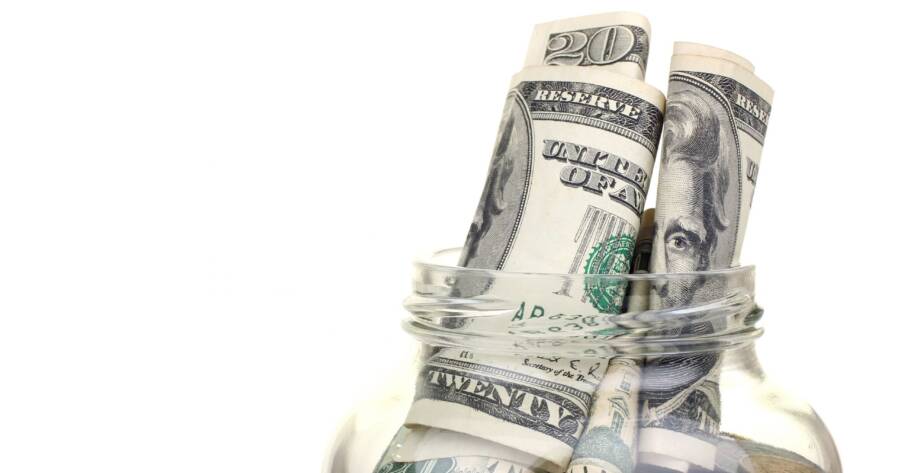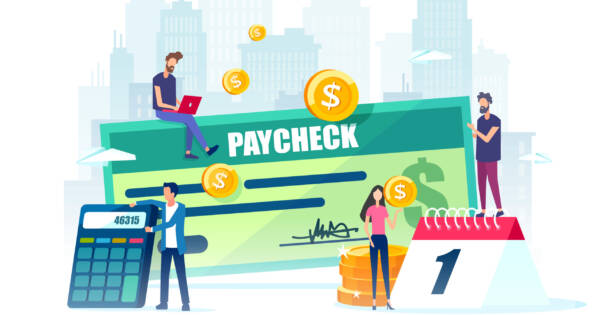In the world of personal finance, “money saved for a rainy day” is far from the sexiest investment you can make. That doesn’t mean it’s not important though. When your life gets flipped upside down — whether from job loss, divorce, a death in the family, or any sort of unexpected financial crisis — having liquid assets to pull from can ensure your survival.
Most financial experts agree that you should have an emergency fund on hand. It’s an essential investment everyone should make, and should ideally cover three-to-six months of expenses. But what constitutes an emergency, exactly? Using your emergency fund should be a last ditch effort, when all other options have run out. If you’re wondering whether or not you’ve reached that point, here are some questions to ask before tapping into your emergency fund.
What Other Resources Are Available?
It’s worth exploring other options before you spend the emergency fund. After all, you may have other sources of money at your disposal. Are any companies or organizations you deal with offering relief for customers who have recently suffered a financial setback? If so, reach out to them. For example, your bank might be willing to waive overdraft fees or adjust a payment plan on a loan. Contact your credit card company and inquire about reduced interest rates or deferred payments. Many companies will work with you, since it’s better than sending the debt off to collections.
If you’ve lost your job, you might be able to access unemployment benefits. On average, unemployment will only cover about half of your regular earnings. However, in combination with other resources, it may be enough to help stretch out your emergency fund or avoid dipping into it altogether. Other last resort options include using a local food bank to help cover grocery expenses while you get back on your feet.
Do I Need This?
Being able to separate expenses into wants and needs is an essential financial skill. Yes, even during boom times. When you’re faced with having to use your emergency fund just to get by, figuring out what you actually need becomes a survival tool. You’ll be in a great position if you were already living below your means. That is, if you weren’t spending more than you earned before this emergency hit. However, even if your expenses are relatively modest, it’s worth reexamining them. You need to determine which ones now qualify as “wants” under your new financial reality.
For instance, having extra money on hand to cover an unexpected cost — say, a major vehicle repair or a pet health bill — is definitely more of a need than shelling out for a new phone. By paring down your list of expenses to essentials, you can stretch your emergency fund further. If you’re extra frugal, it’s possible you could avoid using it altogether!
Was This Situation Expected?
If there’s a downside to having an easily accessible rainy day fund, it’s that it can be tempting to use the money for situations that don’t necessarily qualify as emergencies. For example, Christmas happens on the same day every year. That makes it an expected expense. Despite that, many people regularly go over budget on their holiday shopping.
It may be tempting to use an emergency fund for regular situations that put a strain on your finances. However, it should be reserved exclusively for the unexpected. A job loss, health crisis, emergency car repair, storm damage to your home… these are the events you (probably) won’t see coming. Christmas, on the other hand, is an annual event you have a whole year to plan for.
Budget ahead for the expenses you can anticipate, and save the rainy day fund for a real crisis. That emergency may never come, but you’ll be thanking yourself for not blowing it all on lavish holiday gifts if it does.
Is The Fund Easily Accessible?
When things are going well, complacency tends to set in. It’s hard to imagine the bottom falling out when you’re enjoying a position of financial strength. Unfortunately, emergencies can strike at any time. When they do, you need to be able to quickly access any money you’ve set aside to help weather such an event.
The best place to keep your emergency fund is in a high-interest savings account. As tempting as it may be to put this money in an investment where it can earn a higher return, non-liquid assets aren’t going to do you much good in a crisis. In addition to high yield bank accounts, money market accounts and certificates of deposit (CD) are also good liquid options for storing an emergency fund.
You shouldn’t let your retirement account double as an emergency fund, as there are serious tax hits if you need the money early. Similarly, an investment fund could tank in response to an economic crisis. You don’t want your emergency fund to be a lot smaller than you thought, or vanish completely, when you need it most. Both investing in the markets and putting money away for retirement are smart financial decisions. Just don’t confuse them with saving for a rainy day. Instead, do that separately, putting your money in a safer place in case you need it.
Do I Have Another Income Stream to Tap Into?
With stable full-time employment increasingly difficult to come by, it’s more important than ever to have multiple income streams. Losing your primary income is always a difficult financial setback to deal with. However, it can be more easily managed if it’s not your ONLY source of income. If managed right, a side hustle and/or passive income can help cover essential expenses during difficult times.
Of course, some people simply aren’t in a position where having multiple income streams is realistic. There’s no point beating yourself up for not having multiple income streams in place if you’re already in crisis mode. However, if you’re able to tap into another source of income during an emergency, you may not need to use your emergency fund at all. Thanks to the Gig Economy, you can pretty quickly snag a job driving for a rideshare company or delivering food. It won’t make you rich, but it might keep you from depleting your emergency fund.
The Last Word
In times of financial crisis, it can seem like there are very few good options. Although it can be hard to save the required cash for an emergency fund, it’s truly one of the smartest financial plays you can make. If you’ve managed to actually have one, good for you. You’re in the minority of Americans. Figuring out exactly when (and how) you should start spending it is a different skill altogether.
Try to remember the literal definition of “emergency.” Wanting a new PlayStation isn’t an emergency. A blown transmission is. Wanting a tropical vacation isn’t an emergency either, but paying your rent or mortgage after unexpectedly losing your job certainly is. Don’t make the mistake of “borrowing” from your emergency fund to buy things you don’t truly need. Disaster may strike before you can pay yourself back, leaving you with few good options if your emergency fund is depleted for no good reason. Let your emergency fund be used for true emergencies, and save up for other wants elsewhere in your budget.
 Shutterstock
Shutterstock







